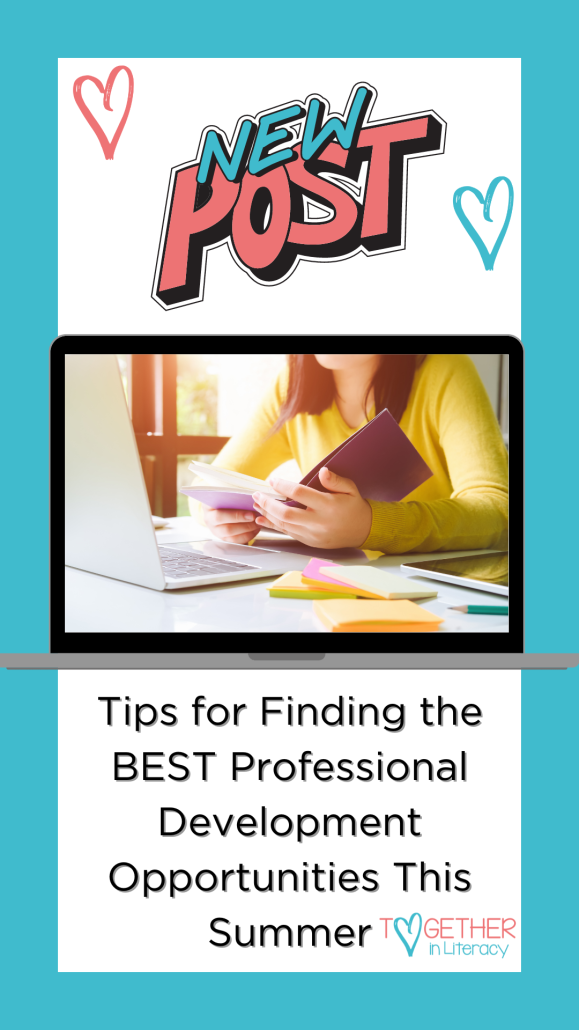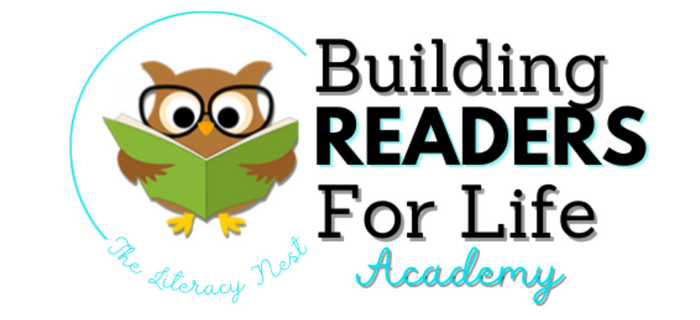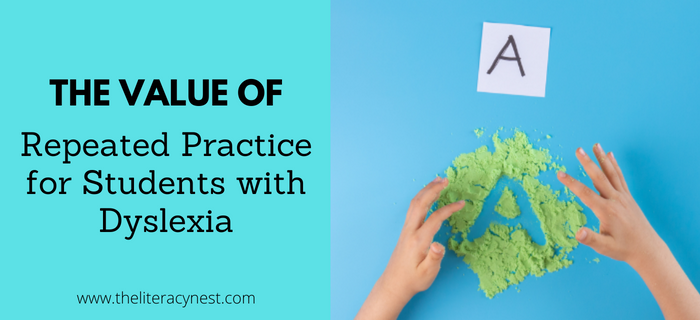How To Get the Most Out of Your Structured Literacy Professional Development
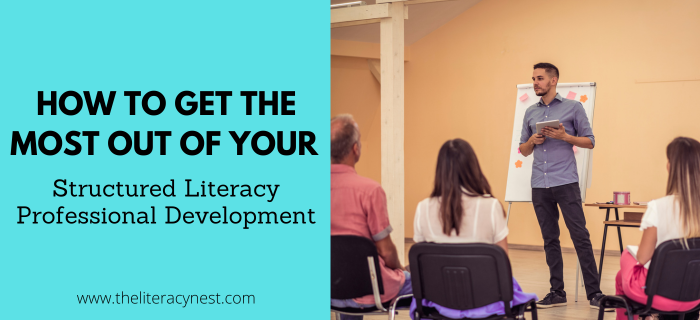
If you are anything like me, you love going to conferences and workshops. Although I always wind up physically exhausted, I somehow also find myself energized and my batteries recharged. Professional development has so many wonderful benefits. You may discover a whole new vein of interest and develop a brand-new skill set. You can reignite your passion for teaching reading and connect with other like-minded educators. Many structured literacy educators find themselves somewhat isolated in their school systems. It can be refreshing to be among colleagues that “get” the importance of structured literacy, especially for struggling learners. Simply being among colleagues with similar training, experience, and beliefs, through structured literacy professional development, can be empowering.
Interested in becoming a structured literacy interventionist? Read Becoming A Structured Literacy Interventionist Using The Orton-Gillingham Approach!
Whether your professional development is in person after a long Covid hiatus or virtual, there are some ways you can make the most of this opportunity. With so many virtual options, it may be possible to attend all the sessions, but it can be helpful to make a plan anyway. What are your absolute must-see workshops or sessions? Making sure to prioritize these sessions will give you the best bang for your buck.
Have you ever left a conference full of excitement and ideas, but then had difficulty following through on what you wanted to do? These tips will help you take that pile of notes and, through mindfulness, turn them into concrete actionable steps.
For more information about choosing professional development opportunities, read Tips for Finding the BEST Professional Development Opportunities This Summer
Here are Five Tips for Getting the Most Out of Your Structured Literacy Professional Development:
Download a printable version of this tipsheet!
Tip #1: Bring a notebook to jot down all ideas to try in the future.
Taking notes seems like an obvious choice with professional development, but organizing your notes strategically makes them even more powerful. Develop color codes, signifiers, or specific note sections. Keep a section or even a separate notebook for things you want to try and put into practice. The act of writing it down will make it more real, will help you remember, and can serve as a reminder later to try something new.
Tip #2: Network!
This can be difficult if you are an introvert, but being brave can really pay off. Take the time to chat with others. Find out what their goals are and how they might align with yours. You may get tips about further pd opportunities, resources, or even a lead on a potential future partnership down the road.
Tip #3: Reflect
It is easy to take notes and then forget about them, but the reflection step is the way to turbo-charge your notetaking. At least once during the day, take the time to read over your notes and reflect.
- Add your reactions and emotional responses. This is also an opportunity to add those signifiers, color coding, or move action items to a separate list.
- Look at the ideas you jotted down that you want to try and prioritize. What would you like to try first, and which might be better saved for a later date?
- Pick one and put together a plan of action.
- What supplies do you need to get started?
- Brainstorm and sketch how you might put your new idea into action.
Tips #4: Keep in Touch with the Presenters!
Have you ever wanted to ask a presenter a question days later, but didn’t follow through? I have! I chickened out. Honor that desire to be curious and outgoing. Most presenters share contact information and welcome further engagement. Asking for clarification may not only help you but might help them revise their presentation for the future.
You never know what connections you might make, or opportunities might come your way just by reaching out. They may have future courses or workshops that can help you extend your learning and may be the perfect next step for your professional development journey.
Tip #5: Extensions
When you review and reflect on your notes, another thing to color code, signify, or compile into a separate list are the resources and books that were recommended by presenters or other participants. Do a little research to see which ones you might be able to borrow or preview for free. Which ones are high-priority purchases?
Perhaps one of your action items might be to gather with other educators for a book club or book study. This would be not only a great way to act on your learning from the conference, but to share your new knowledge with colleagues. Perhaps some colleagues that are not trained in structured literacy can gain a greater understanding and awareness and begin to appreciate the value of the science of reading for all learners.
If you’re looking for continuous professional development for educators, check out Memberships for Educators: Which is Right for You?
While taking the time to review notes and reflect during a conference is still going on may seem counterintuitive, it is an important opportunity. One of the reasons professional development events are so energizing and powerful is that you are temporarily removed from the day-to-day responsibilities and minutiae. Managing your household, the needs of your children, and your job are all put on hold to focus on learning and professional growth. As soon as you return to your normal schedule, all those nitty-gritty details once again become your responsibility and occupy your cognitive energy and time. If you have had the opportunity to reflect and organize your notes and make an initial plan and list of resources, it is much easier to dive right in where you left off!
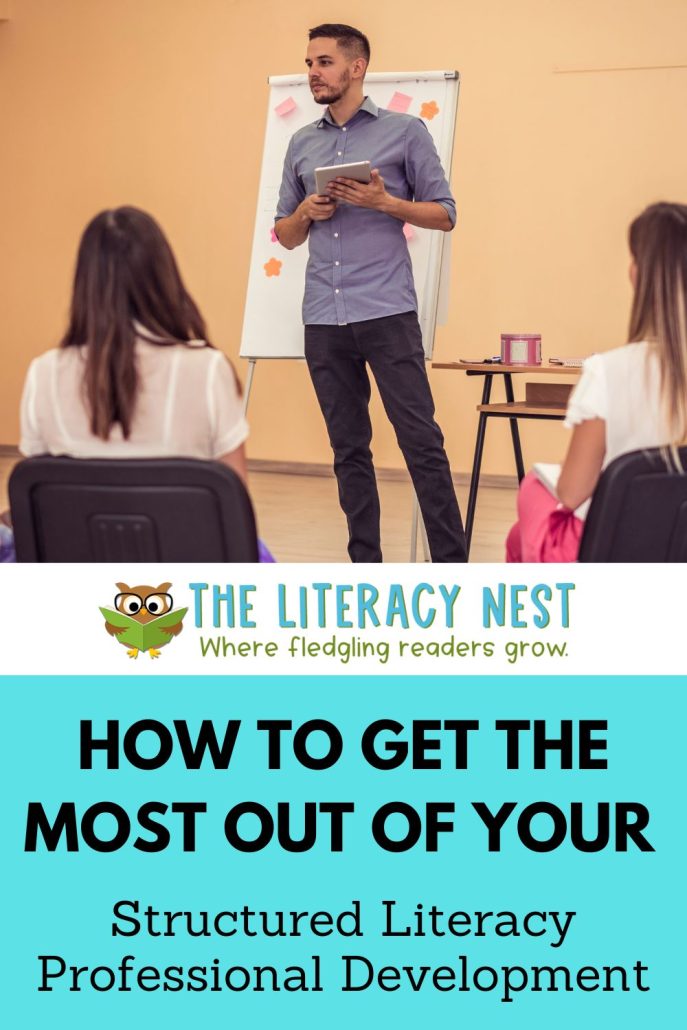
For monthly structured literacy professional development opportunities, sign up for Building Readers for Life Academy. Both educators and families are welcome!
Building Readers for Life Academy is a monthly membership program that empowers educators AND families by diving into structured literacy and strategies for ALL learners. With BRFL Academy, you’ll learn what it takes to help EVERY student become a reader for life. We offer monthly and yearly membership options!

